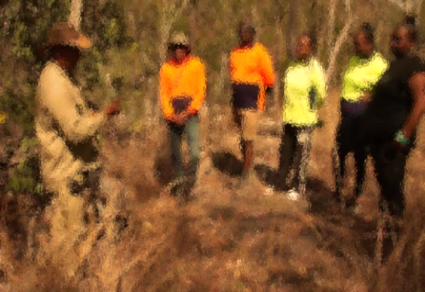Featured projects
Homelessness and Housing
CHC has extensive experience in research, program and service (re)design and development and policy reform activities relating to housing and homelessness in the Northern Territory. Examples include:research into the lived experience of homelessness in Darwin and how this population understood health and addressed their health needs;research that explored the role of transactional sex in everyday life for Indigenous women experiencing homelessness;research that examined the prevalence of trauma among people living rough in Darwin and the implications for service delivery;reviews of Tenancy Support Programs;the design of a program in Darwin for people experiencing homelessness that addresses the health impacts of being highly stigmatised;research with the Specialist Homelessness Services sector on policy reforms relating to quality standards and an outcomes framework for reporting;research and program design for a Residential Managed Alcohol Program for people that experience chronic homelessness and severe alcohol addiction;research and program design relating to a day centre/hub for women and their children that experience homelessness; andevaluation of a medical accommodation program that aims to prevent episodic homelessness.
Domestic, Family and Sexual Violence (DFSV)
CHC has evaluated many DFSV services, including associated outreach services, across the Northern Territory in urban, regional, remote and very remote settings. Informed by ethical considerations, evaluations applied a strengths-based and trauma-informed mixed-method approach to examine the services’ structures, operational models and approaches to governance to identify strengths and gaps and make recommendations for service enhancement. Through meaningful engagement, the safety needs of community members were explored. Emphasis was placed on building the capacity of service staff through the promotion of reflective practices and critical thinking. Similarly, the evaluations facilitated collaboration between stakeholders that interacted with services by moving towards a shared understanding of issues and finding solutions to operational and other challenges. Qualitative and quantitative data were collected through multiple methods and service elements were considered alongside: the operational context; contractual obligations; documented industry best practice; and applicable NTG policies and strategies.Most recently, CHC completed an evaluation of a housing pathways program for women escaping DFSV which involved a Community Housing Provider securing private rentals to sub-lease to eligible women, alongside the provision of specialist DFSV case management support. Justice Re-investment
CHC has undertaken a range of evaluations related to justice. Examples include:the NTG's Elders Visiting Program, which aimed to: improve the health and wellbeing of inmates by maintaining a cultural connection to kin and country while incarcerated; facilitate the successful reintegration of inmates on release; and prevent re-offending and reduce recidivism rates;the NTG’s Community Justice Centre’s operations and services relating to mediation and nationally accredited training;a program that supported women pre- and post-release from prison through psycho-social education and support and intensive case management, particularly once released from prison; andjustice re-investment initiatives in a remote Aboriginal community in connection with a Local Decision Making Agreement, including an Alternative to Custody service and a Community Justice Group. These initiatives intersect with a Community Court, where offenders with a guilty plea had been referred for sentencing. Members of the Community Justice Group have an important role to play in the Court processes, including preparing and providing a detailed Aboriginal Experience Report to the judge and developing sentencing recommendations.
Training, Education and Employment
CHC has had a long association with training, education and employment activities and institutions. Examples include:unit delivery, course coordination and supervision of research students in undergraduate and post-graduate studies in environmental health and community development and management;evaluation of educational resources designed to improve human and dog health and welfare in remote Aboriginal communities;identifying training and employment opportunities in remote Aboriginal community settings;curriculum development for environmental health, health education and health promotion initiatives for schools, Vocational Education and Training organisations and universities;exploring the case management training needs of the homelessness and DFSV sectors and identifying training options; anda review of the Certificate IV in Aboriginal and Torres Strait Islander Primary Health Care (Practice) to identify opportunities to strengthen the training and employment experience of students and graduates to improve employment recruitment and retention rates of Aboriginal Heath Practitioners in the NT.
Socio-economic Analyses
CHC has completed comprehensive base-line socio-economic studies for Aboriginal populations in Northern Australia that have captured and analysed quantitative and qualitative data on a range of social and economic domains, such as health, education, employment and training, income, social participation and cultural engagement, housing, business development and aspirations. With an established base-line for these domains and a documented methodology to repeat the study in the future, communities can determine whether existing programs and services are having the desired impact and where resources should be (re)invested to address the community priorities. Environmental Health Development
CHC has worked on a range of environmental health and health promotion projects in South East Asia and the Western Pacific. Examples include: researching, designing and developing implementation guidelines for the World Health Organization’s (WHO's) Healthy Marketplace Program; train the trainer in Hazard Analysis Critical Control Point (a risk reduction approach to food safety); the evaluation of health promotion initiatives; and the mentoring of WHO fellows. 


